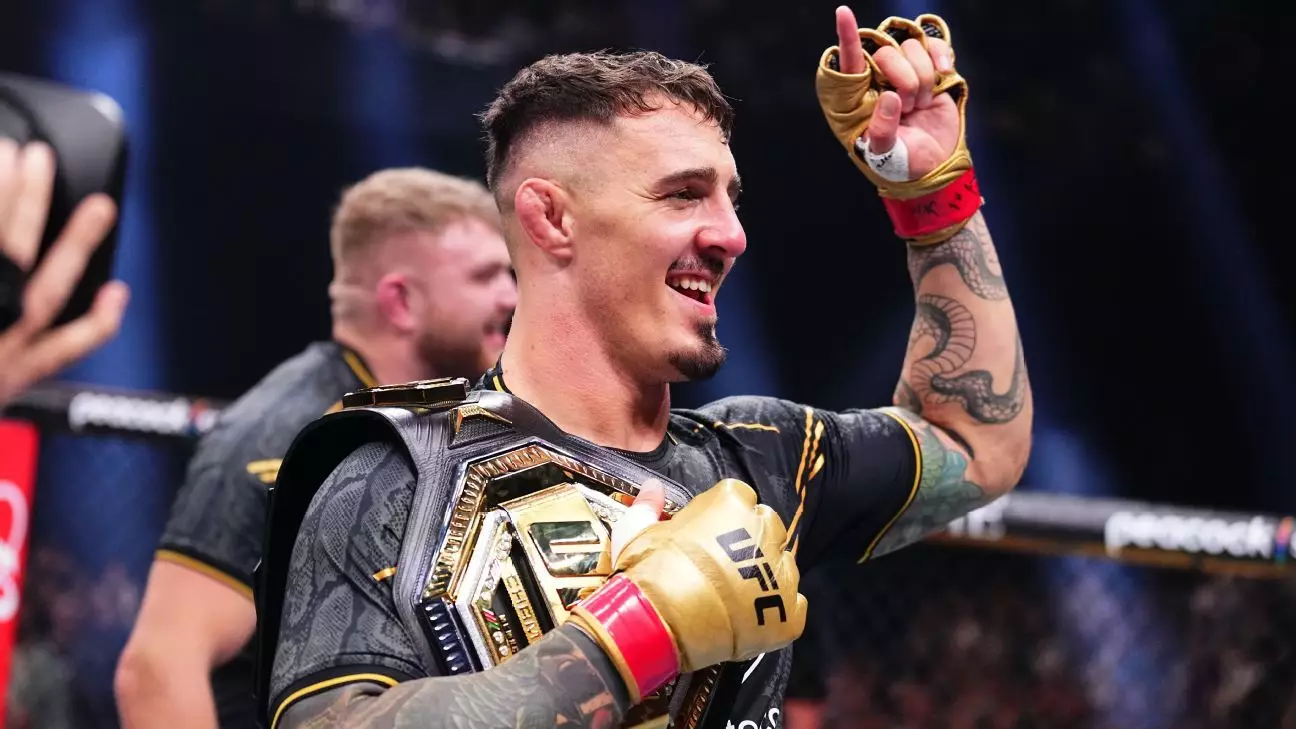Tom Aspinall’s journey to becoming the undisputed UFC heavyweight champion is a testament to persistence and clarity of purpose, rather than personal vendettas or chasing rivalries. When Jon Jones, one of the most iconic figures in mixed martial arts history, decided to retire abruptly, many anticipated Aspinall might have mixed feelings. Yet, Aspinall’s outlook reveals a mature and strategic mindset: he was never fixated on defeating Jones as an individual, but rather on securing the rightful place at the top of the heavyweight division. This distinction, though subtle, shows a commendable focus on legacy over ego. Aspinall’s comment about always considering himself the champion hints at his internal confidence and readiness to seize the moment when the opportunity arose.
Jon Jones’ Retirement: A Complex Departure
Jones’ decision to retire was as surprising as it was significant for the MMA world. Known for his unparalleled dominance and complicated personal life, Jones walked away from the sport just as Aspinall was eager to unify the heavyweight titles. While some fans might view this as Jones avoiding a formidable opponent, Aspinall refrains from judgment, instead showing empathy towards Jones’ personal struggles. The recent legal troubles that Jones faces cast a shadow over his career’s twilight, reinforcing that behind the athlete, there is a human dealing with complex issues. Aspinall’s well-wished sentiments emphasize sportsmanship and respect, highlighting the need to separate the fighter’s in-ring persona from their private battles.
The Weight of an Interim Title and the Drive for Legitimacy
Aspinall’s journey through the interim championship path underlines the often-complicated nature of UFC titles and recognition. Winning an interim belt can sometimes feel like a provisional glory, a placeholder until the ‘real’ champion returns. Aspinall, however, refused to let this label define him. By defending the interim title convincingly, he asserted his claim and erased doubts about his legitimacy as the division’s top contender. His ability to defend the interim belt signaled a readiness not just to participate but to dominate. This approach underscores a critical lesson for athletes: legitimacy is earned not only through titles but through consistent performance and resilience in the face of uncertainty.
Fighting Beyond the Name on the Opponent’s Back
Aspinall’s commentary about never caring who he fights resonates deeply in the highly competitive environment of MMA, where rivalries can often overshadow the sport itself. For Aspinall, the opponent’s identity is secondary to the ultimate goal — being the best in the world. This mindset fosters an internal discipline that is crucial for champions who must navigate the pressures of public expectations, media narratives, and personal ambitions. Aspinall’s attitude is a refreshing reminder that the essence of combat sports lies in the battle itself, not just in the drama around it.
Looking Forward: The Heavyweight Division’s New Era
With Jones stepping away, the UFC heavyweight division enters a new chapter dominated by Aspinall. At 32, Aspinall offers a blend of youth, skill, and determination that promises an exciting future for the heavyweight class. His expressed desire to stay active and fight twice within the year demonstrates his hunger to cement his legacy firmly. This proactive stance contrasts with some champions who risk stagnation by fighting infrequently or avoiding tough match-ups. Aspinall’s ambition to defend and possibly unify or unify further the heavyweight division is not just about maintaining gold but about evolving the sport through dynamic competition.
Empathy in Rivalry: A Rare Display of Respect
Perhaps the most striking aspect of Aspinall’s reflections is his empathy for Jones, a rare quality in elite competition realms. Instead of fostering bitterness or inflammatory remarks, Aspinall opts to acknowledge Jones’ battles away from the spotlight and wishes him well. This humanizing angle adds depth to the often harsh and gladiatorial world of MMA, reminding fans and fighters alike that respect and understanding can coexist with intense ambition and competition.
In scrutinizing Aspinall’s stance and career trajectory, it is evident that his ascension to the top is not just about athletic prowess but also about emotional intelligence and strategic patience. The heavyweight throne is now his to command, and how he wields this opportunity will shape the narrative of the UFC’s next era.

